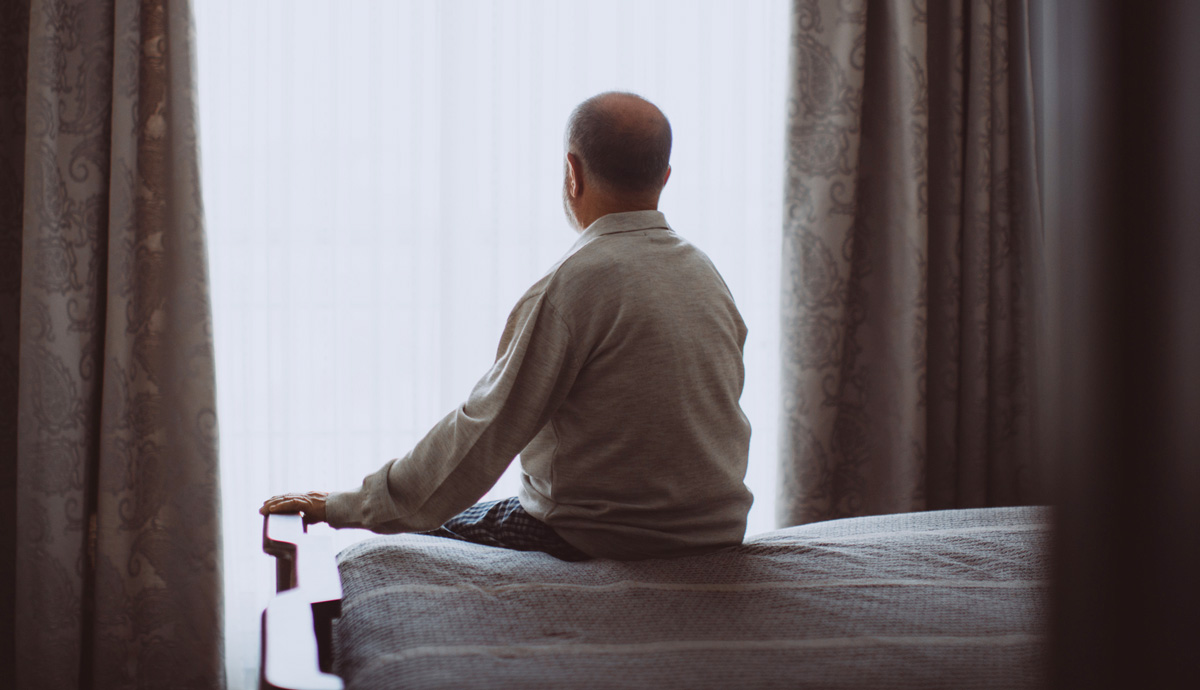Are You Or A Loved One Experiencing Grief or Loss?
Here’s what you need to know

Loss may be a natural part of growing older, but grief still feels strange.
If you or a loved one is grieving a loss — be it of a loved one, a beloved pet, or a job you enjoyed — it’s important to remember that the process isn’t as straightforward as it may seem. There’s no right or wrong way to grieve.
You’ve probably heard someone mention the five stages of grief: denial, anger, bargaining, depression, and, finally, acceptance. While it can be comforting to know that grief comes with a roadmap of sorts, the lines of these stages are often blurred.
Everyone’s experience is unique. The so-called stages aren’t linear; we may move from anger to denial and back again before fully moving forward.
Here’s what you or someone you are caring for may experience during the grieving process, how to manage it, and where to find additional support.
What to Expect When Experiencing Loss
As we mentioned above, the stages of grief aren’t a checklist you’re meant to move through. Rather, each stage represents how you may be feeling on any given day. Not everyone experiences all of these feelings, and they don’t always occur in this specific order.
There’s no timetable for grief … but the more you can talk about your loss, the more you’ll be able to process it and move forward. Grief needs to be felt and experienced to work through the pain. In general, if severe sadness lasts longer than two months, grieving people should be screened for depression by a healthcare professional.
Some older adults experience additional stages of grief, including loneliness, disorganization, physical or emotional distress, and withdrawal. It can be helpful to identify which of the stages you or your loved one is going through.
Grief Patterns in Older Adults
- Denial — You may be in shock and unable to believe the loss has occurred.
- Disorganization — You may check out and abandon routine tasks like housekeeping.
- Anger — You may lash out or you may misdirect feelings of frustration on others.
- Bargaining — You may feel like there’s something you could have done to prevent your loss, thinking, “If only I had…”
- Physical or Emotional Distress — You may feel hopeless or experience trouble sleeping or eating.
- Depression — You may experience loss of energy, lack of motivation, or feelings of numbness and deep sadness.
- Loneliness — You may amplify problems, making mountains out of molehills to fill the void created by the loss.
- Withdrawal — You may detach yourself from social situations where you have to explain your loss.
- Acceptance — You may feel a sense of peace and be ready to reach out to friends and family.
Strong Connections Can Help with Grieving
It’s important to take care of yourself, especially while you’re grieving. Try to allow yourself to feel any emotion that arises without judgment. Journaling can help you understand what you may be feeling.
Neglecting your physical needs can also make grief feel more intense. Eat meals and drink water regularly, try to get enough sleep, exercise when you can, and, most of all, be kind to yourself.
You may not feel like reaching out to family, friends, or others in your community, but sharing how you feel with someone often helps us move through grief. (And if you’re a caregiver for someone who’s grieving, checking in to ask how they’re feeling can be a bright spot in their day.)
Talking about grief can feel awkward, but remember, people want to help. Simply sharing what you need, whether it’s a shoulder to cry on or an errand done on your behalf, can lighten your emotional load.
If you find that you want to withdraw, have trouble with routine tasks, or turn to unhealthy behaviors to cope, remember that there are resources available, often at no cost.
You can join a free Grief Support Group or connect online through the AARP Grief & Loss Forum. Many therapists and counselors offer services on a sliding scale as well.
Finally, keep reminding yourself that grieving is personal — there’s no right or wrong way to do it. And no matter the loss you’re experiencing, talking about it can strengthen your relationships, which can bring you much-needed comfort while you’re grieving.
Stay in the Know
Get practical tips and free support — from help finding work to lowering your bills — when you subscribe to email updates from AARP Foundation.
